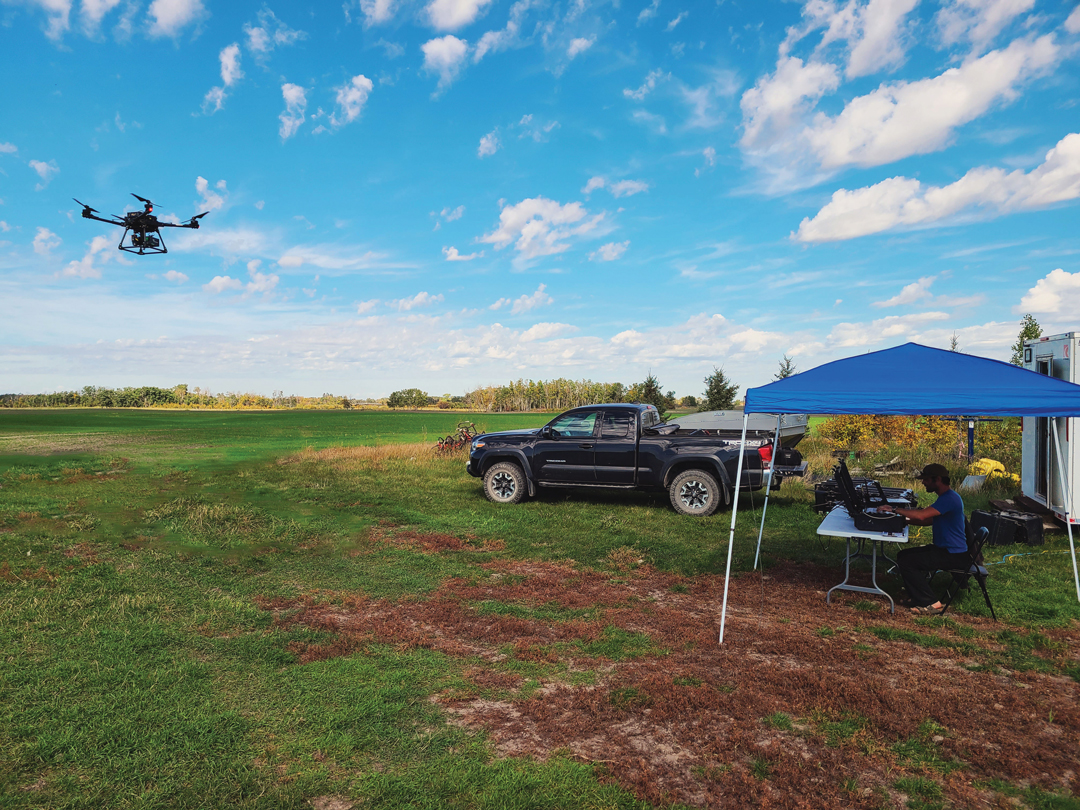EMISSIONS REDUCTION STRATEGY TAKES THE LEAD
BY ERIN K. GOWRILUK
Have you heard the story of the poor old farmer who lost his horse? All his neighbours came to him and said, “Well, that’s too bad.” The farmer said, “We’ll see.” The next day, the horse returned, bringing another horse with him. The neighbours proclaimed, “What good fortune!” to which the farmer replied, “We’ll see.” The next day, while taming the horse, the farmer’s son fell and broke his back. Again, the neighbours came to the farmer and said, “Well, that’s too bad,” and again, the farmer replied, “We’ll see.” Shortly thereafter, a conscription officer came to collect all the able-bodied young men in the area but rejected the farmer’s son due to his injury. Again, the neighbours came to the farmer and said, “What good fortune!” and again, the farmer said, “We’ll see.”
Often, the narrative we create for ourselves shapes reality. If we follow the parable, we find that “good” outcomes depend on our outlook. It’s very easy to define things as “good” or “bad,” but what if, when we encounter a conflict, we embrace a “We’ll see” approach before we predefine the outcome? Take Agriculture and Agri-Food Canada’s (AAFC) fertilizer targets, for example. In 2020, AAFC announced its goal to reduce fertilizer emissions by 30 per cent. The announcement and its subsequent rollout seemed uninformed and lacked the necessary details to ease farmers’ concerns. On its face, it was a lousy outcome for all involved.
However, it also presented an opportunity. Over the last year, farmers have voiced frustrations. In the months following the announcement, we’ve also seen increased willingness on the part of the government to work together to develop sustainability solutions that support agriculture. In December, we were pleased to be invited to join AAFC’s Sustainable Agriculture Strategy advisory panel. Its creation marks what we hope will be a long-term strategic approach that leverages work already done by farmers.
In recent decades, farmers across the country have led the way when it comes to innovation and sustainability. So, in conversations about future developments, we cannot risk having an approach dictated to us. We also know we have a pivotal role to play, which is why the Grain Growers of Canada did not wait for consultations. Over the last year, we have worked with farmers, experts, academics and industry partners to develop the Road to 2050, a practical and proactive set of recommendations to achieve Canada’s net-zero goals.
Rather than having the same negative outcome thrust upon us, we’re paving a path to a more productive and sustainable future. Looking to 2050, experts expect the world will have to increase food production by 26 per cent to keep pace with population growth. We already face extreme pressures within our food supply, so the plain and simple truth is sustainability and productivity must be linked; we cannot have one without the other.
Road to 2050, which will be released in late March, is a framework for government that reflects the needs and goals of Canadian grain farmers. Farmers have long demonstrated they are part of the solution, which is why we are coming to the table ready to take on this challenge, and we will advocate for farmers every step of the way.
Erin K. Gowriluk is the executive director of the Grain Growers of Canada.







Comments